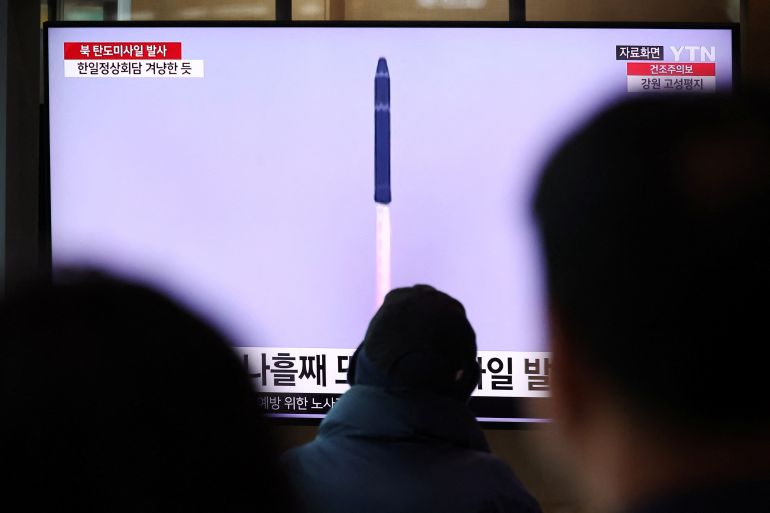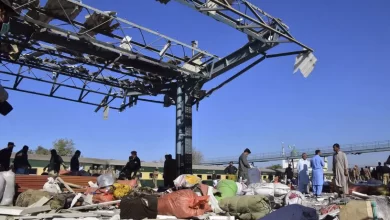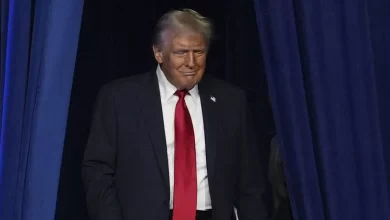North Korea launches ICBM ahead of South Korea-Japan summit

The third missile test this week comes as leaders of Japan and South Korea prepare to hold their first summit in years.

North Korea has fired an intercontinental ballistic missile into its eastern waters, just hours before South Korea’s president was due to fly to Japan for the first summit between the two countries in years, with the situation in nuclear-armed North Korea a key concern.
South Korea’s Joint Chiefs of Staff said on Thursday morning Pyongyang had launched what appeared to be a banned ICBM.
The weapon flew towards the Korean Peninsula’s eastern waters after being launched from North Korea’s capital, Pyongyang, at around 7.10 am, the military said in a statement. The ICBM launched on a steep angle and flew about 1,000 kilometres (620 miles) before landing in the waters between the Korean Peninsula and Japan, it added.
Japan also detected the missile and the coast guard issued a warning to vessels to be vigilant of fallen objects.
Defence Minister Yasukazu Hamada said the missile probably landed in the waters outside Japan’s exclusive economic zone after about one hour in the air. The landing site is about 250 kilometres (155 miles) off the western island of Oshimaoshima, which is close to where other North Korean ICBMs have fallen after test-flights.
The launch is North Korea’s first of an ICBM in a month, but followed a series of missile launch events this week amid ongoing large-scale military drills between South Korea and the United States, which Pyongyang considers hostile and a rehearsal for invasion.
The latest launch also comes hours before South Korean President Yoon Suk-yeol and Japan’s Prime Minister Fumio Kishida are due to meet in Tokyo for the first bilateral summit in 12 years.
Both South Korea and Japan are ramping up defence spending and joint military exercises, which Yoon has said are essential for regional and global stability.

Before heading to Tokyo, Yoon convened an emergency security meeting on the launch, instructing the South Korean military to proceed with its ongoing exercises with US forces, conduct some of the planned joint drills in an intensive manner and strengthen Seoul-Washington-Tokyo security cooperation, according to Yoon’s office.
“North Korea’s reckless provocations will pay the clear price,” the president said.
In Tokyo, Kishida said: “We must further strengthen cooperation among the allies and like-minded countries.” He declined to comment on North Korea’s possible intentions of the launch.
Already this week, Pyongyang has fired cruise missiles from a submarine and sent short-range ballistic missiles across its territory and towards an eastern sea target, after leader Kim Jong Un ordered his military to be ready to repel what he called “frantic war preparations moves” by North Korea’s adversaries.
The US and South Korea began the so-called Freedom Shield exercises, which include field drills and computer simulations, on Monday. They will wrap up on March 23.
The US, meanwhile, said it “strongly condemns” North Korea’s latest ballistic missile test. White House National Security Council spokesperson Adrienne Watson said in a statement that such actions needlessly raise tensions in the region.
North Korea fired a record number of missiles last year, justifying its weapons development as necessary for self-defence.







